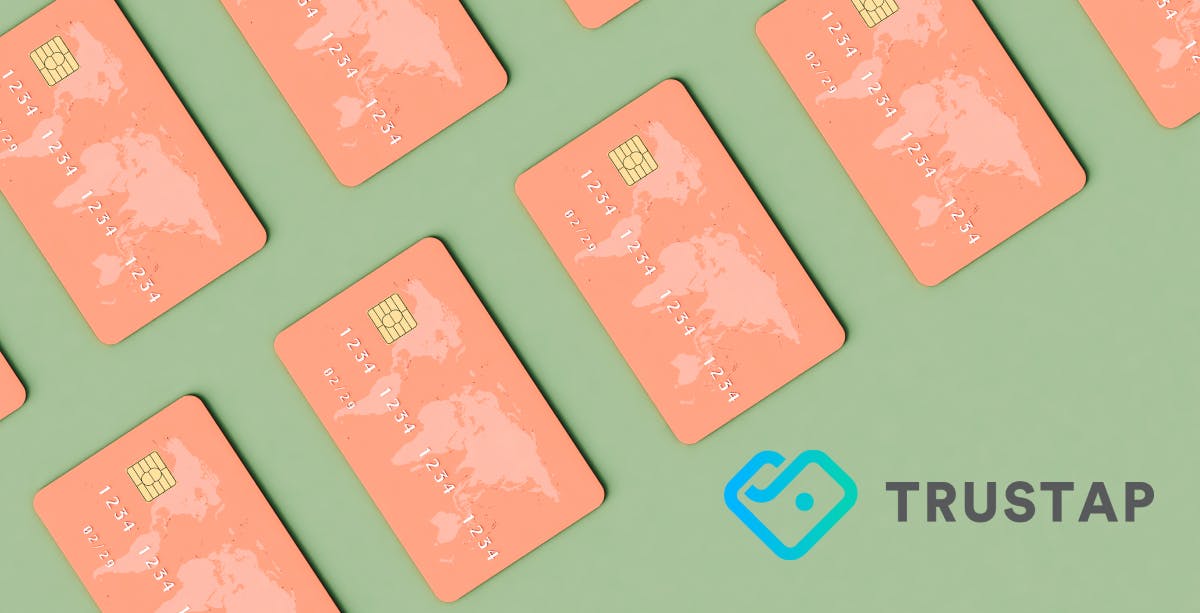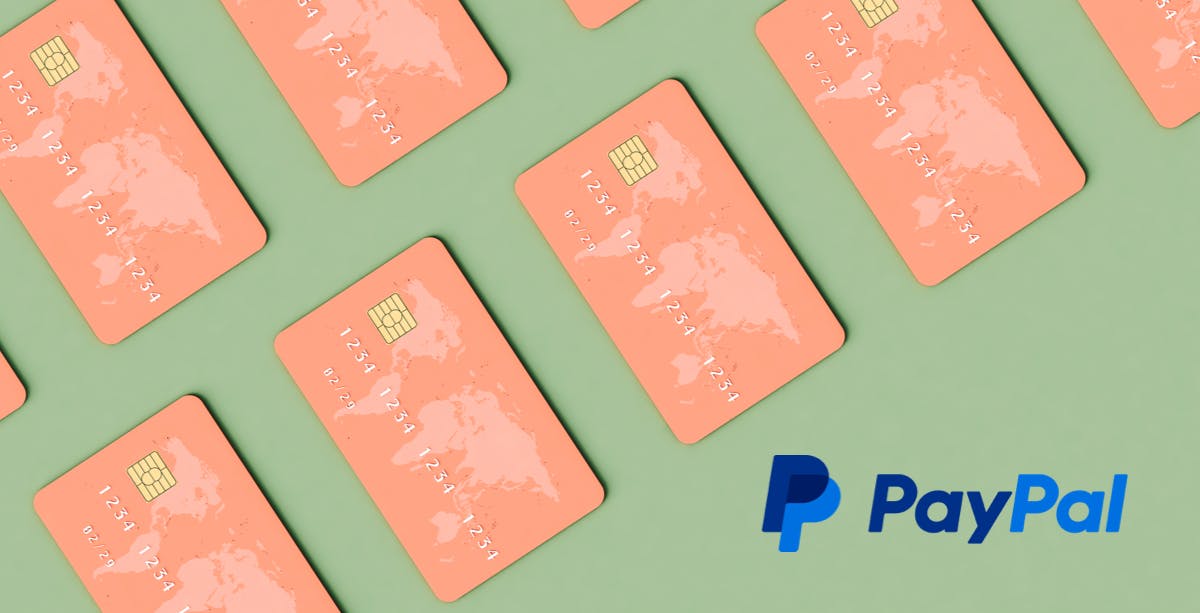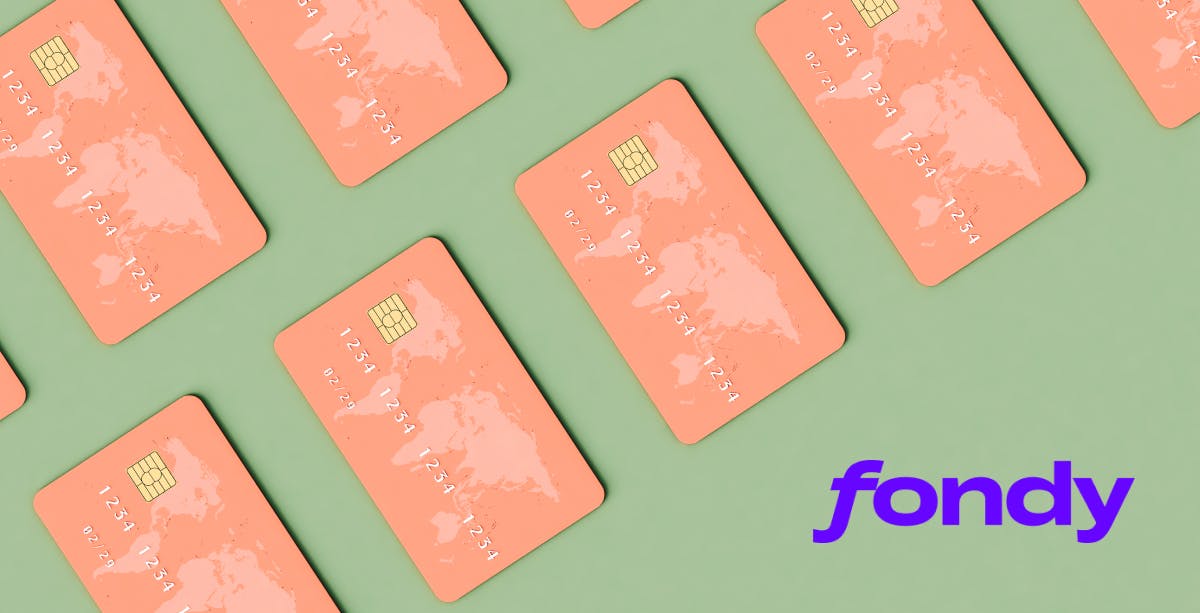Trustap marketplace payments–overview of key features
Is Trustap the right marketplace payment partner for you? Here's an overview of Trustap's key features, pricing, support, and more.
Published on
Last updated on

Your marketplace payments solution impacts many things in your business, from the user signup and checkout experience to how you grow and expand your marketplace. That’s why it's important to choose a payment partner whose offering aligns with your business goals and objectives.
Trustap calls itself “the only end-to-end transaction platform for marketplaces”. In this guide, we’ll help you evaluate if Trustap is the right partner for your business.
Key points in this article:
- Background information on Trustap: Valuation, competitors, and famous marketplaces using Trustap to power their payments.
- Trustap's key marketplace features: Countries, currencies, payment methods, split payments, escrow, subscription payment, and payment security.
- Trustap's pricing and some more things to consider before building a Trustap integration.
Trustap is an end-to-end transaction management platform specifically designed for online marketplaces. In addition to escrow-style payments, the service includes integrated shipping and logistics as well as customer support and dispute resolution.
Trustap was founded in 2017 by Conor Lyden and has its headquarters in Cork, Ireland.
Here are some key metrics about the company:
- With over 500% growth year over year, Trustap now has physical offices in Ireland, Croatia, the UK, and the US.
- The company has over 100 marketplace clients and serves more than 1 million users.
- Trustap recently raised $5.5M in series A funding led by TX Ventures. Other investors include MiddleGame Ventures, Atlantic Bridge, SeedX, ACT Venture Capital, and Enterprise Ireland. Trustap's current valuation is undisclosed.
Currently, 100+ customers are using Trustap’s payment service for their platform. Well-known customers include:
- Mudah (Malaysia’s largest classified marketplace). Part of the Carousel Group.
- Preloved (General second-hand goods in the UK).
- Student Seats (Ticket resale platform for US college sports).
- The Tipro Group (A group of fashion resale marketplaces across the Baltics, including the flagship brand MojeKrpice).
There are thousands of payment providers in the market and dozens with a dedicated marketplace offering. Trustap’s main competitors include:
- Stripe Connect (However, Trustap partners with Stripe and uses some of Stripe’s products in its tech stack.)
- PayPal for Marketplaces
- Mangopay
- Adyen for Platforms
- Ryft
- Fondy
- Mollie
In Sharetribe’s marketplace builder, Stripe Connect is currently the only marketplace payment provider that’s available out of the box. However, you can build a custom integration with any third-party payment provider you want, including Trustap.
Here's an article that helps you compare the different marketplace payment providers.
Despite being a relatively new entrant in the marketplace payment sector, Trustap competes well against the old-timers in terms of both coverage, capabilities, and pricing.
For example, it supports over 100 countries and currencies, rivaling Adyen for Platforms and Mangopay. At the same time, it offers competitive pricing with no minimum monthly fees or setup fees.
Trustap’s biggest differentiating factor is its “end-to-end transaction management approach. Trustap acts as a Merchant of Record, which means it takes responsibility for potential fraud and disputes on behalf of the marketplace. Trustap can also handle order fulfillment (with its integrated shipping feature) and customer support on the marketplace’s behalf.
Furthermore, Trustap recently added a split payments feature which allows it to support the most common marketplace business model: commission. This feature also makes Trustap a fit for marketplaces that need a multi-vendor shopping cart.
Perhaps the first thing you should consider when choosing a payment provider for your marketplace is the provider's geographical reach, currency support, and available payment methods.
Does the payment provider accept payment in local currencies from buyers in your target region? Does it let you send payouts to countries where your sellers are? These factors will determine where your marketplace can operate, who can use it, and how easily users can transact on your platform.
These are the countries where a marketplace or payment platform lets buyers make purchases and sellers list their products or services. Trustap supports transactions in over 100 countries, including:
- USA
- Canada
- UK
- Australia
- UAE
- Most European countries.
Compared to other payment platforms, Trustap's country support is quite extensive. It positions itself well against competitors like Stripe Connect, which is available in 46 countries, and Adyen’s 35 countries.
Trustap doesn't quite match PayPal for Marketplaces' near-global reach of over 200 countries and regions. However, especially in the early stages, the total coverage matters less than great support in your initial market.
These are the countries where the platform can directly transfer funds to sellers. Due to varying money transfer regulations, some payment platforms may support a smaller set of payout countries than what’s listed for “countries supported”.
However, in this case, Trustap can send money to the same 100+ countries where its service is available. This means also your sellers can be located in any of Trustap’s supported countries.
Your marketplace needs to be able to process payments in the local currencies of your target market or target markets. Trustap supports over 100 currencies, including:
- USD
- EUR
- GBP
- CAD
- AUD
Offering payment methods that align with your target audience's preferences can make a big difference in your checkout experience. For instance, the local payment method iDEAL can be a success factor in the Netherlands.
Trustap offers a variety of payment methods to cater to different user preferences:
- Credit and debit cards
- Apple Pay
- Google Pay
- iDEAL
- Klarna
- ACH
- BACS
- Open Banking (UK only)
Overall, Trustap offers a competitive range of supported countries, currencies, and payment methods. Its offerings are particularly strong in currency support and payout countries, making it a viable option for marketplaces with an international focus.
Trustap distinguishes itself from its competitors as “the only end-to-end transaction platform available for marketplaces.” In practice, this means that in addition to the payment, Trustap can handle order fulfillment and customer support in one automated flow.
A key feature here is integrated shipping. On Trustap-powered marketplaces, users can buy and manage shipping within the checkout UI. Both the buyers and the sellers can view the tracking status, and the flow of funds can be automatically triggered when a specific milestone in the order fulfillment is met.
According what we heard from folks at Trustap, they can either work with existing shipping partners or bring one of their own into the flow and offer reduced shipping fees.
Another component is Trustap’s optional transaction management platform, which includes outsourced customer support, fraud management, and dispute resolution. In the event of a dispute, the buyer would contact Trustap directly, and Trustap would handle the issue on the marketplace’s behalf.
In fact, Trustap COO Steve Grice told us they are so confident in their ability to keep marketplaces free of fraud and chargebacks that, should the worst happen, Trustap will take a share of the liability.
The end-to-end payment flow works for any product type: shipped items, downloadable goods, or items where the handover happens face-to-face.
The majority of marketplaces make money through the commission model: they take a cut out of every transaction that happens through the marketplace. This business model requires a dedicated payment feature: split payments. Without it, collecting a commission from users’ payments would be a manual process that’s at best labor-intensive and error-prone, and at worst illegal.
A split payment feature automatically divides a buyer’s payment into multiple parts, typically between the seller and the marketplace itself (for commissions or fees).
Trustap recently added the split payment functionality to their offering, allowing the company to support marketplaces that monetize via commission fees.
This feature also makes Trustap a fit for marketplaces that wish to build a multi-vendor shopping cart. In a multi-vendor shopping cart, the money paid by a customer needs to be split among several sellers in addition to allowing the marketplace to charge its fees.
Escrow (or delayed payouts) is an essential feature that builds trust and prevents scams in a marketplace. Delayed payouts let a marketplace temporarily hold the buyer's payment until certain conditions are met.
Typically, this means the seller doesn’t get paid before the buyer confirms they’ve received what they bought. If a marketplace monetizes through commission, it also needs to be able to deduct its fee from the total before the rest of the payment flows to the seller.
Trustap offers delayed payout and escrow functionality, with a fully customizable timeframe and automated payouts triggered by milestones. This gives a founder a lot of flexibility to specify the conditions and milestones that need to be met before a payment is released.
For example, Trustap supports a payment flow where a seller can sign up for the marketplace and list their items without completing the full KYC process (more on this step later) at this stage. When a customer buys their listing, the marketplace can notify the seller that a payment is waiting for them and they’ll need to complete the KYC process before receiving it.)
Furthermore, Trustap offers a remarkably long maximum payment delay period of up to two years. Such an extended timeframe can be particularly useful for example if your marketplace deals with products with extended warranty periods.
Overall, Trustap's escrow functionality is quite sophisticated compared to its competitors. This can make Trustap a great fit for marketplaces dealing with high-trust, high-value purchases, or platforms in crowded niches where added trust can be a competitive advantage.
However, as mentioned before, if you need to combine split payments (e.g. to charge your commission) with escrow, contact Trustap to ensure this is possible.
Subscription payments are a monetization model in which users are charged a recurring fee (e.g., monthly or yearly) for access to products or services.
In the context of marketplaces, there are typically two scenarios where subscription payments come into play.
- Platform-level subscriptions: The marketplace charges recurring fees from its users—either from the sellers, the buyers, or both.
- Seller-initiated subscriptions: Individual sellers on the platform offer subscription-based products or services to buyers. The marketplace facilitates these recurring transactions, typically taking a commission from each payment.
Trustap payment system offers a subscription payment feature that supports these use cases.
However, as Trustap’s split payment functionality is in beta, all the details on how seller-initiated subscriptions work with commissions are not publicly available. If you’re considering this business model, contacting Trustap for more information is a good idea.
Trust is Trustap’s core value proposition—its website even promises to “completely eliminate the risk of fraudulent transactions.”
Not surprisingly, Trustap’s security and compliance features are top-notch.
Know Your Customer (KYC) support: Trustap offers a frictionless KYC process built directly into the marketplace UI. This integration allows for a smooth user experience while still meeting regulatory requirements. The KYC process is a regulatory requirement related to paying funds to individuals or companies. The exact requirements for KYC compliance differ between countries and are subject to change as regulation evolves, which is why it makes sense to marketplaces to leave the heavy lifting to a payment partner.
3D Secure 2 support: Trustap supports the 3D Secure 2 protocol, which is an additional security layer for online credit and debit card transactions. This protocol helps prevent unauthorized transactions and reduces the risk of fraud.
Compliance with local online payment regulations: As a verified partner of Stripe, Trustap benefits from Stripe's top-level PCI DSS (Payment Card Industry Data Security Standard) accreditation. This helps Trustap comply with government security standards and regulations for handling credit card information.
Proactive fraud management: Trustap uses a dedicated fraud management team that actively monitors transactions. The team can pause suspicious transactions for investigation before they are processed.
Trustap handles chargebacks and manages buyer/seller disputes. This service can significantly reduce the operational risk of marketplace operators.
Overall, Trustap offers key security and compliance features that cover major areas of concern as a marketplace.
As a marketplace owner, you might need to report your seller’s income to tax officials.
For example, most EU marketplaces are required to report on seller data yearly under the DAC7 directive. In the US, these “marketplace facilitator laws” vary by state.
Trustap’s end-to-end transaction management allows them to provide regular reports in line with DAC7 and other local tax requirements to all marketplace owners.
The platform also has tax reporting tools that generate DAC7 reports for sellers who cross a specific threshold. Additionally, sellers can generate custom reports (as specified at the marketplace level) for individual accounts.
However, tax reporting is a complex subject that no payment provider covers completely. Be sure to check the exact requirements from your local tax official to ensure your marketplace complies with the relevant tax regulations.
Trustap’s pricing information isn’t available on the website, but when we contacted them they shared the following with us:
- Card transactions: Starting from 1.8% + €0.30 per transaction, inclusive of escrow services.
- Bank transfer/open banking: Fees range from 0.25% to 1.5% depending on the transaction value, also inclusive of escrow services.
- An optional fee for the transaction management platform starts from €60/mo + 1.2%. This service includes support, dispute resolution, and fraud management functions. If this service is selected, Trustap assumes all risks of fraud and chargebacks.
Trustap doesn’t have a minimum monthly fee, which is great news for early-stage marketplace founders: if there are no transactions on a given month, there will be no fees from Trustap.
There is no initial setup fee. If needed, Trustap can also offer discounted outsourced development services.
Trustap's pricing is generally competitive within the marketplace payment industry. The base rate for card transactions (1.8% + €0.30) is comparable to or slightly lower than some major competitors. For instance, Mangopay transaction fees start from 1.4% + €0.25, while Stripe Connect starts at 1.5% + €0.25 or 2.9% + 0.30 USD.
Generally, the lack of a setup fee and the availability of subsidized development resources could be an advantage for new or growing marketplaces. However, as the entire pricing information isn’t publicly available, it’s a good idea to contact Trustap directly and ask for their offer for your marketplace.
Integrating a marketplace platform with a third-party payment provider is a big undertaking. This is why one last important factor to consider is the ease of the integration process. Especially for an early-stage founder with limited technical resources, ease of integration can be a decisive factor.
At Sharetribe, we have some experience in our developer partner network of integrating with Trustap. (Sharetribe-powered marketplaces have a Stripe Connect integration out of the box, but founders can build a custom integration to any third-party service.)
Furthermore, folks at Trustap have shared with us that they offer a dedicated team of onboarding specialists to guide marketplace teams through the integration process. They’re also able to offer discounted outsourced development services.
Trustap’s documentation and help content are rather limited compared to those of larger competitors. For example, Trustap doesn’t have a dedicated Help Center resource for founders, and its technical documentation only consists of its API reference.
However, our general experience is that the smaller players in this space usually excel in their level of customer support and ability to help their customers succeed. If you’re considering Trustap for your marketplace and can’t find the information you're looking for on their site, consider contacting them directly with your questions.
Despite being a relatively new entrant to the marketplace payments market, Trustap offers a comprehensive feature set that is suitable for various types of marketplaces and business models.
Trustap excels in helping marketplaces maximize trust and security in their online payments. This can offer a real competitive advantage for a marketplace that deals with high-trust, high-value items, or a platform that operates in a crowded niche where trust can help differentiate against competitors.
Trustap also offers an additional service called transaction management platform, where they take care of order fulfillment, customer support, and dispute resolution. This can free up a big part of the marketplace team to add value elsewhere.
Trustap's pricing structure is competitive, with card payment fees starting from 1.8% + €0.30 per transaction and bank transfer fees ranging from 0.25% to 1.5%. An additional fee starting from €60/mo + 1.2% applies for the transaction management platform. No setup fees or minimum monthly fees apply.
Overall, Trustap offers a unique and comprehensive solution for marketplace payments. With a strong marketplace feature set, global coverage, and competitive pricing, it’s a payment partner worth considering for both early-stage marketplaces and established platforms.
Thank you to Steve Grice from Trustap for contributing the key facts about Trustap's offering.
More articles for you...

Marketplace payments: The complete guide
Marketplace payments are very complex. This guide helps you list your feature requirements and compare and choose the best marketplace payment provider for you. (Yes, there's a comparison table!)

PayPal marketplace payments – overview of PayPal for Marketplaces key features
PayPal for Marketplaces is a widely used marketplace payment provider. Explore its features, fees, available countries, currencies, payouts, and more.

Fondy marketplace payments: overview of key features
Are you considering Fondy to power your marketplace payments? Here's our thorough overview on its key features, pricing, and more.
Start your 14-day free trial
Create a marketplace today!
- Launch quickly, without coding
- Extend infinitely
- Scale to any size
No credit card required
